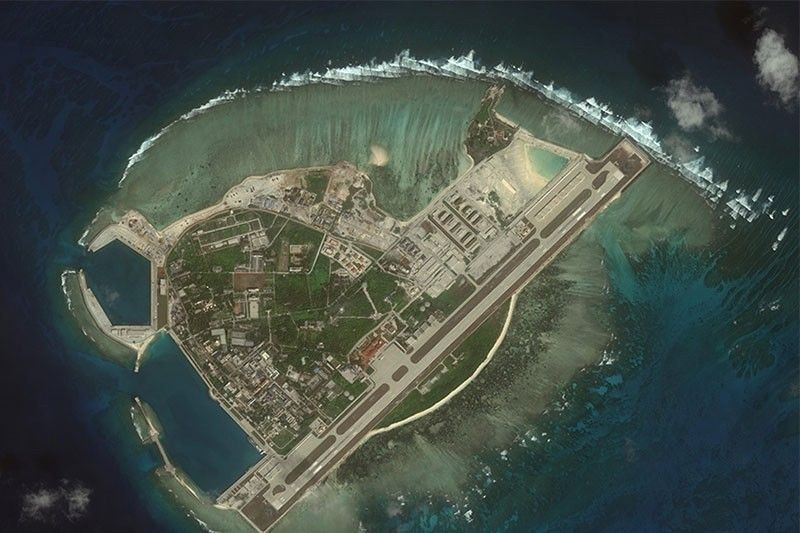US use of Philippines code over Yellow Sea questioned

MANILA, Philippines — National Security Adviser Hermogenes Esperon said US counterparts should explain the alleged use of a Philippine-assigned code by a US Air Force plane while flying over the Yellow Sea that could incriminate the country amid rising tensions with China.
Esperon said in an online presser yesterday that they have sent communications to the US embassy in Manila over the incident but there has been no update yet.
“What could happen, it could implicate or incriminate the Philippine side. But we simply have to remind our US counterparts of the implications. This is something that must be discussed nonetheless we hope this could be settled satisfactorily between the parties. Para bang nagpanggap on our behalf,” Esperon told reporters.
“We have an obligation to ourselves to communicate with our counterparts why it was done. We have no update yet. We leave that to the defense department,” he added.
He noted that the US Air Force pilots and technicians could have probably been testing the reaction of China, who in turn said this was a serious security threat.
A report by the South China Morning Post quoted Chinese foreign ministry spokesman Wang Wenbin saying that the US should stop dangerous provocations to avoid accidents.
Reports cited an update from the South China Sea Strategic Situation Probing Initiative (SCSPI), which said that a US RC-135S reconnaissance aircraft disguised itself as a Philippine or Malaysia aircraft as it flew over the Yellow Sea, the body of water between China and Korea.
The detected code from the Philippines could have flagged suspicion from China, as the country does not conduct air patrol operations over that area.
Esperon added that this should “serve as a lesson” for parties involved in using aircraft passcodes.
Meanwhile, Esperon said that the Philippines has always been performing its task to protect national interests in the West Philippine Sea.
Esperon said that President Duterte’s pledge to uphold the historic arbitral ruling is nothing new.
“We believe that our arbitral ruling that we have had been in our hearts. And part of our protocols. The UNCLOS (United Nations Convention on the Law of the Sea) is part of our protocols. Through these agreements, we are able to protect and conserve our interests in the WPS,” he added.
Duterte raised the ruling that voided China’s expansive maritime claim in the South China Sea during his first address before the United Nations General Assembly.
Meanwhile, the Philippine Navy activated yesterday a new office that would take charge of the modernization program of the country’s fleet.
Navy chief Vice Admiral Giovanni Carlo Bacordo led the activation ceremonies of the Philippine Navy Modernization Office (PNMO) at the Naval Station Jose Andrada in Manila.
Navy Capt. Emerson David will head the newly established PNMO that will ensure the effective and efficient implementation of the PN Synchronization Matrix.
The PNMO will oversee the programming and implementation of modernization projects in the Navy towards a modern and multi-capable force.
The unit is in line with the creation of the Armed Forces of the Philippines’ System Engineering Office in the AFP General Headquarters.
- Latest
- Trending






























